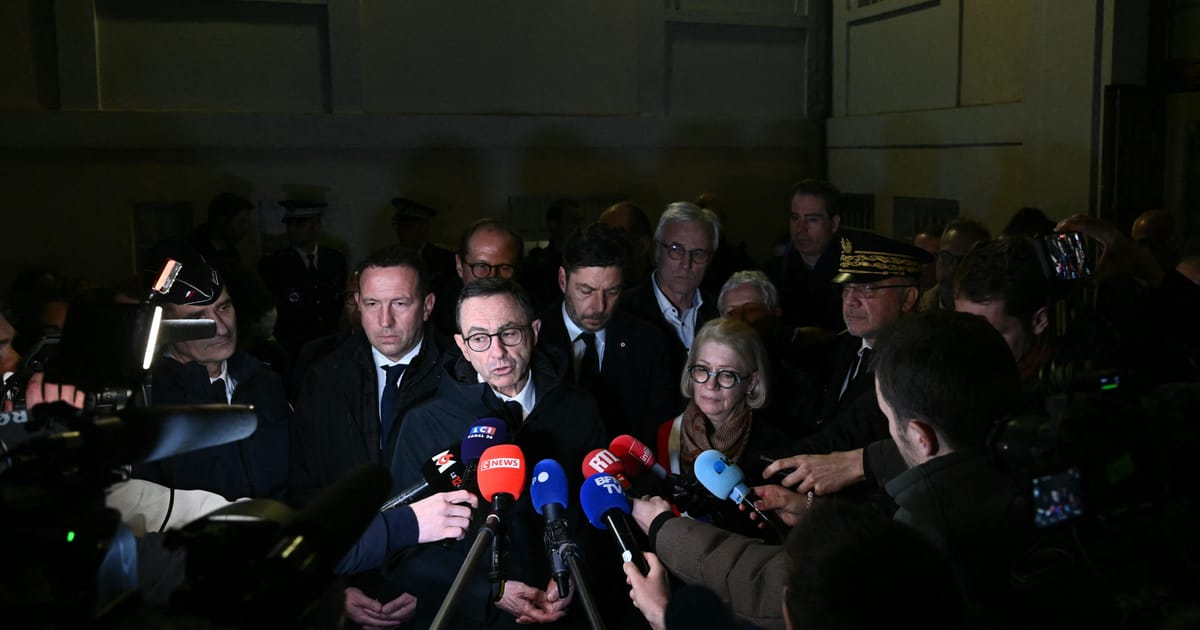The attack, which President Emmanuel Macron described as an act of Islamist terrorism, has reignited debate in France on whether to rein in immigration amid a Europe-wide shift to the right. How the government responds will likely affect its increasingly strained relationship with Algeria, a former colony, and could have political ramifications for Bayrou and the increasingly popular Retailleau, who is vying for the lead of his conservative party, Les Républicains.
Within hours of the attack, Retailleau pinned the incident on what he called France’s insufficiently tough immigration laws, which lawmakers strengthened in late 2023.
“We need to change the rules. Enough is enough,” Retailleau said as he arrived in Mulhouse Saturday evening.
 The attack, which President Emmanuel Macron described as an act of Islamist terrorism, has reignited debate in France on whether to rein in immigration amid a Europe-wide shift to the right. | Sebastien Bozon/AFP via Getty Images
The attack, which President Emmanuel Macron described as an act of Islamist terrorism, has reignited debate in France on whether to rein in immigration amid a Europe-wide shift to the right. | Sebastien Bozon/AFP via Getty Images
While official figures show no spike in documented migration, Retailleau’s hardline position has been well received. His approval rating now makes him the most popular member of the government, according to a recent survey of 1,005 French voters conducted by polling institute Odoxa.
Perhaps because of this, the interior minister’s stance on immigration has been backed by key members of Macron’s centrist camp and by high-ranking government officials — including the prime minister. Bayrou even took fire from the left last month for claiming it felt like parts of France were being “flooded” with migrants.
The shift in attitude toward migration isn’t limited to France. Across the border in Germany, incoming conservative Chancellor Friedrich Merz has vowed to close the country’s borders to asylum seekers after an Afghan man was accused in January of attacking a group of preschoolers in a park, stabbing to death a 2-year-old boy and a man attempting to protect the children.
